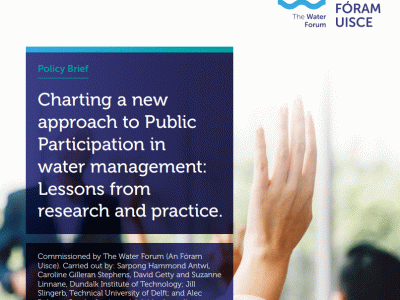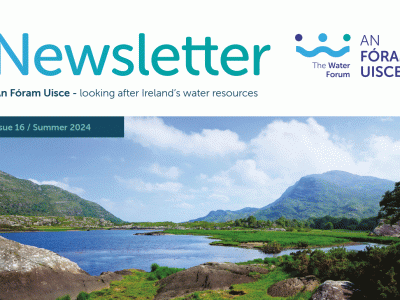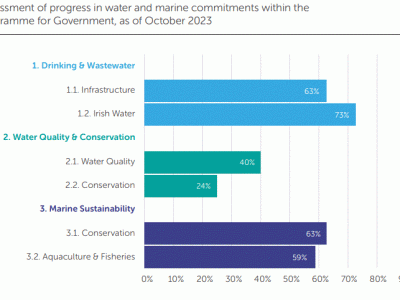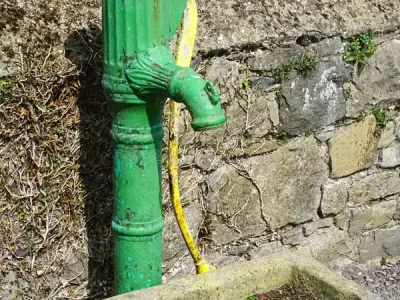This week a representation from the National Water Forum – An Fóram Uisce met with members of the Climate Change Advisory Council, Climate Adaptation Committee and team to highlight the importance of including water management in climate adaptation plans.
The Climate Change Advisory Council is an independent advisory body tasked with assessing and advising on how Ireland can achieve the transition to a climate-resilient, biodiversity-rich, environmentally sustainable and climate-neutral economy. The Water Forum is a statutory stakeholder body set up to advise on the management of Ireland’s water resources. Research commissioned by the Forum on the potential impacts of climate change on water quality and quantity and on the development of a National Framework for Domestic Water Conservation provides learnings for climate action and adaptation planning.
The Forum’s position was presented by Dr Triona McGrath, Research and Policy Lead. She highlighted the challenges posed to water management as result of climate change.
The Forum’s recommendations included the need to take an integrated catchment-based approach to planning for climate adaptation and mitigation, where account is taken of the benefits and trade-offs for climate, water and nature.
Governance and policy coherence is essential to support the alignment of climate, water and biodiversity objectives for optimum environmental benefits. Drought Management Plans and Flood Management Plans should be developed at catchment level.
Uisce Éireann state that up to 66% of its water supply zones are in supply deficit in drought and dry periods. Water Conservation measures could mitigate some of this stress and there is an opportunity for the public sector to lead by example in this space by making buildings more water efficient in their Climate Action Plans.
Sectoral Adaptation Plans need to address the future challenges posed to water resources by a changing climate such as the potential for cyanobacterial blooms in lakes that are drinking water sources, degradation of peatlands that result in increased trihalomethanes (a carcinogenic) in drinking water supplies.
The presentation was followed by a short Q&A and the committee were interested in future engagements with the Forum as new Climate Action Plans are developed.
Policy Brief for Climate Change Impacts on Ireland’s Water Resources




